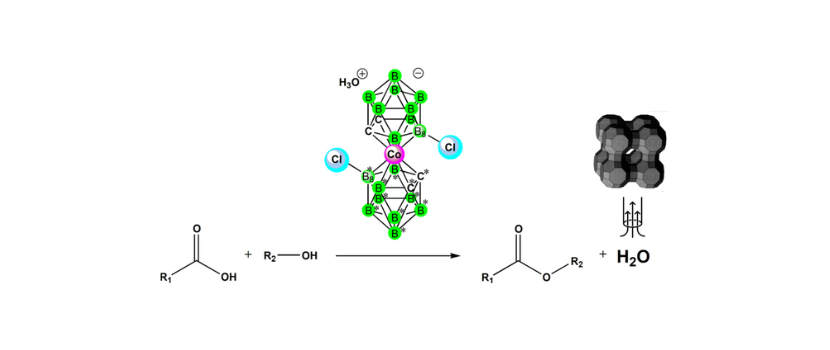
New scientific publication from the Department of Chemistry brings innovation for efficient biodiesel production
Second-generation biodiesel, produced from non-edible fats and oils with higher free fatty acid content, is an interesting alternative to fossil fuels. However, these acids complicate production in conventional processes because they react with soaps.
The solution is provided by a new homogeneous catalyst that enables the efficient conversion of fatty acids into esters. The catalyst, based on halogenated cobalt bis-dicarbolide strong acids, is stable, non-corrosive, reusable and easy to separate. Moreover, the continuous removal of water from the reaction mixture by molecular sieves accelerates the synthesis and increases the biodiesel yield and reduces the energy consumption of production.
This issue is addressed in a new scientific publication, Halogenated Cobalt Bis-Dicarbollide Strong Acids as Reusable Homogeneous Catalysts for Fatty Acid Esterification with Methanol or Ethanol, from the Department of Chemistry’s Inorganic and Analytical Chemistry research group.
Kaule, P.; Šícha, V.; Macháček, J.; Naumkina, Y.; Čejka, J. Halogenated Cobalt Bis-Dicarbollide Strong Acids as Reusable Homogeneous Catalysts for Fatty Acid Esterification with Methanol or Ethanol. Int. J. Mol. Sci. 2024, 25, 13263. https://doi.org/10.3390/ijms252413263